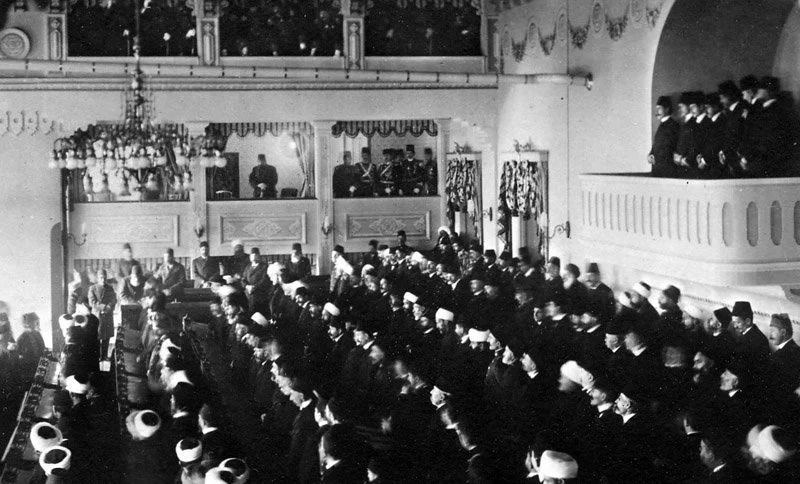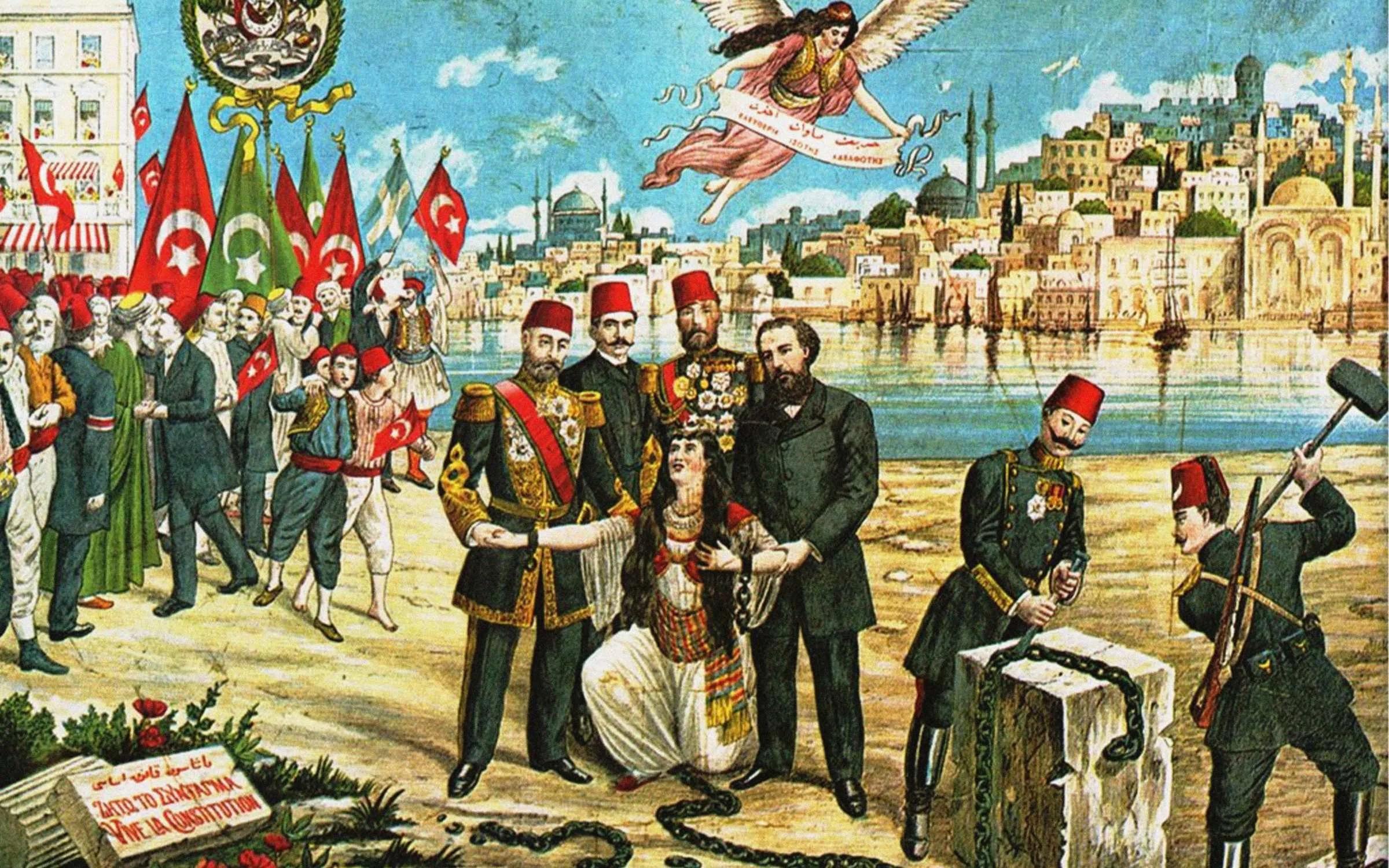About the Project
Project Overview
This project investigates how modern Muslim political ethics evolved during the final decades of the Ottoman Empire and how the notion of equality in multi-faith societies was reinterpreted through Islamic sources. Supported by the Templeton Religion Trust, the study seeks to trace a historically grounded alternative to the liberal individualist model of pluralism that has dominated Western political thought, by revisiting Islamic ethical traditions.
The 19th-century Ottoman Empire is often interpreted through the lens of secularization and Westernization. However, this project highlights how Islamic legal and moral values were integrated into the modernization process through concepts such as ‘adl (justice), shura (consultation), and nizam (order), offering an example of alternative modernity rooted in Islamic ethics.
Scholarly Context and Problem Statement
Contemporary political theory and pluralism are largely shaped by traditions that prioritize individual rights. Thinkers such as John Rawls, Charles Taylor, and Will Kymlicka—grounded in Western liberal experiences—often assume that religiously based models of governance are inherently incompatible with modern equality.
This project offers a counterpoint: the late Ottoman Empire demonstrates that a multi-confessional and pluralistic order can emerge from Islamic ethical and legal traditions, without centering the liberal individual. The millet system, constitutional reforms, and community-based legal autonomy all illustrate how alternative models of equality and coexistence were practiced in the Muslim world.
Objectives and Research Questions
The primary aim of this project is to examine political ethical thought developed during the late Ottoman period and, based on that historical experience, offer an alternative model of equality and community-centered governance for contemporary pluralistic societies. It seeks to analyze how a system—grounded in Islamic ethical traditions, historically tested, and institutionally implemented—functioned outside the liberal individualist paradigm, and what lessons it may offer for today's multi-faith world.
By integrating historical inquiry with normative political theory, the project combines archival analysis, legal and intellectual texts, and period-specific materials to illuminate both the practical mechanisms and conceptual underpinnings of the Ottoman experience. In doing so, it aspires to re-establish the concept of covenantal pluralism as a viable and rooted model for rethinking Muslim political ethics in modern contexts.
Drawing on archival sources in Ottoman Turkish, Arabic, Greek, Albanian, and Hebrew—including court records, parliamentary proceedings, periodicals, and intellectual writings—the project rethinks this rich legacy as a guide for contemporary pluralistic societies. The proposed model of covenantal pluralism aims to strike a renewed balance between individual rights and communal identities.
Key outputs of the project include a digital ethics archive, conceptual maps of key terms, academic publications, and policy briefs. These elements aim to enrich scholarly discourse while deepening the historical foundations of Muslim political thought. Ultimately, the project invites reflection on how peaceful and constructive models of pluralism embedded in Islamic history might be reimagined for today.
The project's core claim is that contemporary political thought must take seriously those pluralist models that arose within Islamic traditions—especially in contexts like the Ottoman Empire—rather than assuming secular liberalism to be the sole in legitimate framework. The Ottoman state's 19th-century reforms represent not blind imitation of the West, but a deliberate response to modern challenges using indigenous Islamic tools.
Despite its significance, this experience remains underexplored in both Islamic intellectual history and global political theory. It is either marginalized through orientalist or nationalist narratives or dismissed within Islamic thought in favor of classical jurisprudence or imported modernity. The late Ottoman experience, however, offers a hybrid, adaptive, and context-sensitive political ethics that resists such binary framing.
This project revisits that "middle modernity" not to idealize the past, but to better understand and develop frameworks for contemporary multi-faith societies—where neither secular nationalism nor theological rigidity suffice.
The core objectives of the project include:
To demonstrate how Ottoman political ethics articulated a model of equality that did not rely on secular foundations.
To offer a comparative evaluation of the Ottoman model of community-based pluralism with today’s liberal individualist frameworks.
To redefine “modernization” within Muslim political thought in a way that does not depend on secularization.
To analyze how Islamic political concepts—such as justice (ʿadl), consultation (shura), community (umma/cemaat)—were reinterpreted during the modernization process.
To construct theoretically applicable frameworks for contemporary plural societies inspired by this historical experience.
The main research questions guiding the project are:
How did the Ottoman millet system relate to emerging notions of legal equality and citizenship?
Through which Islamic concepts did Ottoman thinkers articulate ideas of equality, freedom, and justice?
How was the balance between communal autonomy and centralized governance negotiated?
In what ways can the late Ottoman experience serve as a viable model for today’s multi-faith and multi-ethnic societies?
How can this model be conceptually developed within the framework of covenantal pluralism?
Methodology and Sources
This project is situated at the intersection of historical research, political theory, Islamic studies, and cultural anthropology. Its goal is to examine political-ethical discourse from the late Ottoman period both in its historical context and conceptual structure, and to assess its applicability for contemporary settings.
Archival and Historical Document Analysis
The project is grounded in the study of multilingual Ottoman archival sources. Primary materials include documents in Ottoman Turkish, Arabic, Albanian, Greek, and Hebrew, such as:
Sharia court records (Şer’iye sicilleri)
Parliamentary proceedings from the Ottoman Senate and Chamber of Deputies
Periodicals, newspapers, and pamphlets from the late 19th and early 20th centuries
Manuscripts, political treatises, and legal texts written by Ottoman intellectuals
Visual materials such as maps, caricatures, photographs, and public posters
These documents will be analyzed to uncover how religious and ethnic communities were legally recognized, politically represented, and integrated into the administrative fabric of the Empire.
2. Conceptual Mapping and Begriffsgeschichte (History of Concepts)
In addition to textual analysis, the project employs conceptual history methodology to trace how key political and ethical terms evolved over time. Special focus will be given to concepts like justice (ʿadl), consultation (shura), millet, community (cemaat), right (ḥaqq), and law (kanun) within the context of late Ottoman reform.
3. Comparative Political Theory
The Ottoman model will be analyzed alongside contemporary political theories of liberal pluralism. This comparison will highlight both divergences and possible intersections between Islamic communal frameworks and secular individualist paradigms.
4. Digital Archive and Visualization
All collected data will be categorized into thematic clusters and presented in an open-access Digital Archive of Muslim Political Ethics. This platform will include interactive visualizations such as:
Network maps of key thinkers
Conceptual relationship diagrams
Temporal-spatial analytics showing the development of ideas and institutions
Through this multidisciplinary and digitally integrated methodology, the project seeks not only to recover a lost intellectual tradition, but also to reframe it as a viable contribution to ongoing global conversations on pluralism and governance.
Expected Outputs and Impact
This project seeks not only to analyze historical materials, but also to produce accessible, applicable, and durable outputs that inform both academic research and public discourse. Drawing on multilingual archival sources, the project aims to generate practical tools and theoretical contributions for understanding pluralism through the lens of Islamic political ethics.
A major output will be a digital archive of Muslim political ethics, featuring curated primary sources in Ottoman Turkish, Arabic, Greek, Hebrew, and Albanian. The archive will include digitized manuscripts, court records, and parliamentary debates, as well as interactive features such as conceptual maps and network diagrams of key intellectual figures.
The project will also produce thematic analyses of key ethical-political terms—such as justice, community, law, and pluralism—to demonstrate their historical transformations and contemporary relevance. These will inform the development of conceptual maps and ethical guides, intended for scholars, educators, and policy professionals.
In addition, academic publications—including peer-reviewed journal articles—and workshops will serve to disseminate findings and refine the theoretical framework. A comprehensive landscape report will map the current state of Muslim political ethics research, providing a resource for future scholars and institutions.
The long-term impact of the project lies in its effort to help reimagine Muslim political thought not as a remnant of the past, but as a rich, dynamic resource for constructing future models of governance. In an era marked by deepening polarization and identity-based conflict, the project offers a historically grounded, ethically rooted alternative to prevailing secular liberal frameworks of pluralism.





